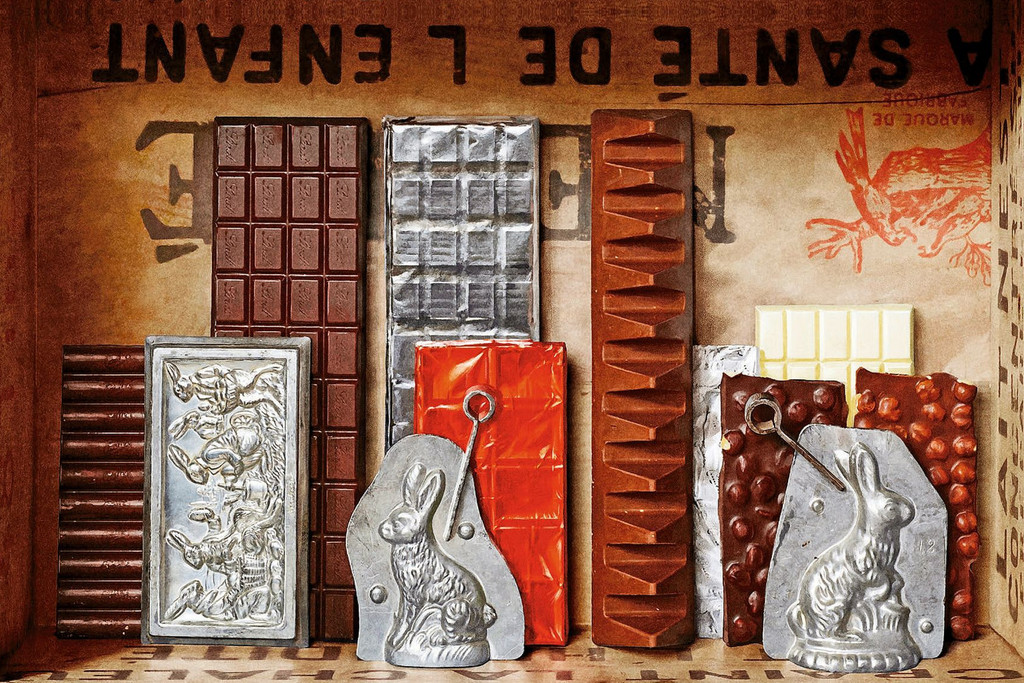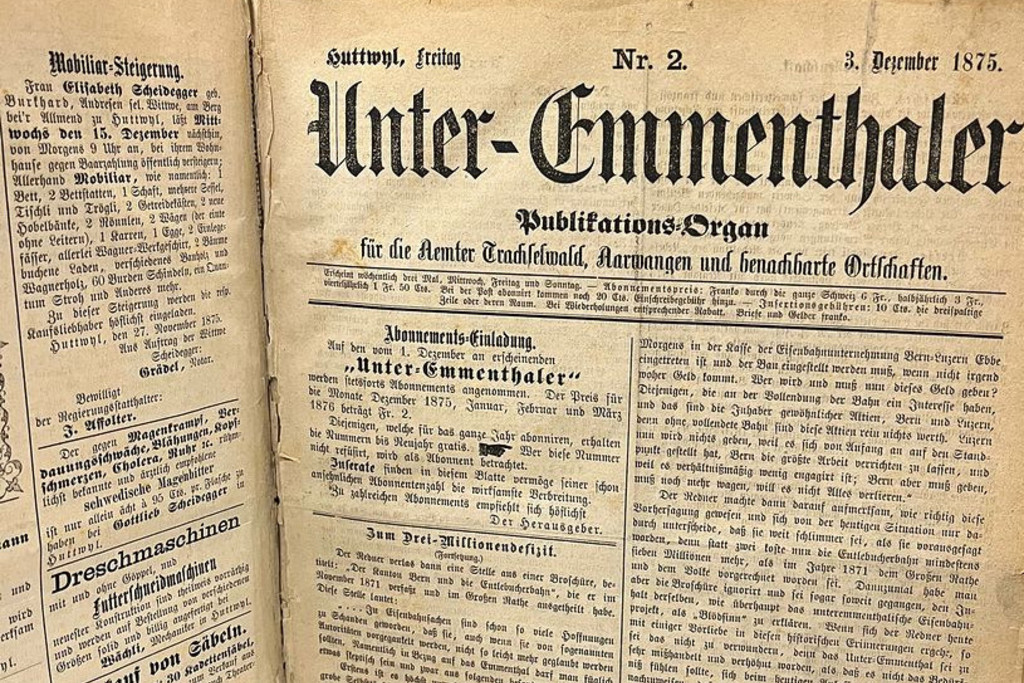Mr Osterwalder, 50 years since 1968 is a big issue this year. And it’s also a chapter in your life. What’s it like to find your own youth presented in a museum?
You realise that something you were involved in is over. But you also reflect on what happened.
How do you see it?
There are two sides. We were concerned about issues such as social justice, gender equality and opening up society. In this regard, our efforts paid off as tremendous progress has been made. The other side of it was that we wanted to completely revolutionise society with 19th century Marxist, socialist and Trotskyist theories. Fortunately for us, nothing come of this.What do you mean by “fortunately”?
Our ideas had no major repercussions in Switzerland. It was different in many Latin American countries where Marxist revolutions took place, some of which ended terribly. They cost lives, and ultimately also those of the Marxists. In this respect, we in Europe were the lucky ones in the 1968 movement.
Because nobody was held accountable for the dream of revolution?
It goes beyond that. People like me were even able to forge careers in the state education system, from teachers to professors.
In the same system that you wanted to topple as a Marxist.
Exactly. Our ideas were as fundamentalist as they were rudimentary, and perhaps even naive – council-based democracy and a planned economy. It could have ended badly. Very badly.
Undemocratically, in other words?
In an undemocratic, totalitarian and chaotic way.
You were only 21 years old in 1968. You then helped to found the Zurich section of the Revolutionary Marxist League (RML) which split away from the Communist Workers’ Party.
Yes, but that wasn’t until 1971. Something else existed before that in 1968 – a broad, extremely diverse movement of non-conformists, by which I mean people who were essentially disillusioned with the prevailing social order and who articulated their discontent outside of traditional political structures, which also meant outside of the “old left”. The entire movement extended far beyond a particular social milieu. The non-conformists also included people who sought radical change in literature and theatre. Other people saw opening up the education system as being the most important issue. Others were completely apolitical.
How did you organise yourselves?
We met up at demonstrations, at pubs and in action groups which pursued particular goals, such as solidarity with Vietnam, the empowerment of the trade unions and the revitalisation of theatre. The political groupings were very loosely affiliated. In Thurgau, there was a group of students, school pupils and apprentices who would meet up for discussions, including with representatives of the “old left”.
So, 1968 was more than just a student movement.
I was a student, but we weren’t just campaigning for educational reform but also on behalf of apprentices or foreign workers in Switzerland. It’s hard to imagine today but there was a waste disposal site back then on the outskirts of Frauenfeld next to which was a shanty town where the guest workers from Italy lived, separated from their families who were not allowed to come here with them. This was how Switzerland treated them. We wanted to do something about it.
The sense of being able to change the world seemed to unite the movement, overcoming all differences.
Yes, there was a sense of that. We’ll start again from scratch and do a better job, especially morally. Ethics was a very important aspect of 1968. Small factions of the movement came from the SP or the Workers’ Party. But a much larger part came from church circles. Greater solidarity with and justice for the Third World, guest workers and women – all of this was based on strong ethical convictions.
What role did the protest against the Vietnam War play?
This conflict raised many people’s political awareness, as did the socialist revolution in Cuba, the fight to liberate French-occupied Algeria and also the dissident movements in the Eastern Block. These events showed us the emergent resistance against “imperialism” and the Eastern European regimes. And we saw ourselves as part of this resistance.
That is also the way the representatives of the prevailing order saw you. The authorities responded by repressing the protests.
Yes, this was during the political climate of the Cold War, secret files and espionage. But that’s just one half of the story. The other half was the willingness to engage in debate with us and to discuss our concerns, even amongst the traditional elites.
Really?
There was also a great spirit of openness in some of the universities. University administrations and many professors wanted to debate with us. I later experienced the same thing myself as a teacher. I taught at a vocational college for the deaf in Zurich. Our principal was the president of a local SVP branch, but he still sat down with me once a week to discuss matters.
But weren’t you once barred from the profession?
No, that’s not true. I was not appointed to a senior teaching position at a grammar school in Winterthur and lost my teaching contract for political reasons, but I was able to teach at other state schools.
In 1979, you explained the “path to socialism in Switzerland” in a book. This talked about “overthrowing capitalism and breaking the capitalist class’s power of control over the vast majority of the population”.
That’s how we worded it at the time. We wanted to get rid of bourgeois society and private ownership of the means of production and strove to create a society of equals, socially and not just under the law.
People on the left like yourself were accused of failing to critically come to terms with your past in an article published by “Weltwoche”to mark the 40th anniversary of “1968” ten years ago.
As I said, I’m pleased that the revolution came to nothing. But I’m also glad that many of our goals have been achieved. There is now greater gender equality, the situation of foreign workers in Switzerland has improved and everyone is covered by old-age pension provision.
What about capitalism?
Some of our ideas are still relevant today. Just think about the power of the global banking system which plunged the western world into crisis in 2008. Controlling this power democratically still represents an attractive proposition for society today.
You were a teacher and professor of education. What impact did 1968 have in schools?
The first thing is that the education system was made more accessible. We had 36 pupils in our class at the grammar school in Frauenfeld – only five of whom were girls. Today, there are more girls and children from the lower social strata in upper secondary education. Corporal punishment has also disappeared, but fortunately authority has not.
Would you consider yourself a liberal today?
Yes, I’d say so, a social liberal. Traditional liberalism was one of the enemies in 1968 but it is the bedrock of a democratic society. This can be seen in Russia today. Democracy becomes authoritarian without liberalism.
The 1968 generation grew up in the prosperous and growth-driven society of the post-war period. Then they declared war on this society and its values. Isn’t that a paradox?
No, if anything it’s logical. Those who struggle to survive do not spend most of their time pursuing alternative world views, as we did back then. And conversely, those who can enjoy a beer and a steak can still reflect on the fact that, say, the same level of prosperity does not exist in the Third World. Such a gulf can make people sensitive to issues of social justice.
From 1980 onwards, your RML was called the Socialist Workers’ Party (SAP). It occasionally won seats on cantonal and communal authorities and also launched a federal initiative in favour of guaranteed vocational training, which was resoundingly rejected in 1986. In 1987, the SAP ceased to exist and many of its members joined the Greens or SP.
Yes, I was a member until the very end but didn’t join any other parties afterwards because I was focusing more on my academic work. I still feel a sense of commitment to many of the issues we campaigned on.
Which ones?
Democratisation, especially in relation to economic affairs, gender equality and social security.
Daniel Di Falco is a journalist with “Der Bund”and a historian
Fritz Osterwalder
Fritz Osterwalder, born in 1947 in Frauenfeld, was studying history and German literature in Zurich in 1968. Today, he is mainly known for his research on the relationships between educational ideas, religion and the state. He made a name for himself with his critical look at the “expectations of salvation” that society places on schools and the “cult status” of educational reformers, such as Montessori, Steiner and Pestalozzi. In 2012, Osterwalder retired from his position as professor at the Institute of Educational Science at the University of Berne where he had worked since 2000. Before that he lectured in education in Karlsruhe and worked as a teacher and journalist in Zurich and Winterthur.
1968 – more than turmoil and scandal?
1968? Historians today, when they refer to 1968, actually mean the events – including in Switzerland – that were not restricted to a single year. There were the riots at the Rolling Stones concert at the Hallenstadion in Zurich in April 1967, the occupation of the teaching seminar in Locarno in March 1968, the battles on the streets of Zurich known as the “Globus riots” in June 1968, the large-scale women’s demonstration on the Bundesplatz (“March on Berne”) in March 1969 and Harald Szeemann’s provocative exhibition “When Attitude Becomes Form” at the Kunsthalle Bern in March/April 1969. The 1968 movement revolted against traditional forms of authority and demanded self-determination, justice and solidarity. However, a wider development was also identifiable in the headline-grabbing protests – they were the climax of social upheaval that began in 1965 and went on for over a decade. This development was reflected in the rising number of divorces, university degrees and women in employment. Prosperity, youth culture and mass media also created a dynamic that increasingly conflicted with the conservative values which shaped the climate in Switzerland during the post-war era. A process of social modernisation was underway which broke fresh ground with the protests of 1968 and finally resulted in political reform but also a broad liberalisation of social norms. The number of accepted ways of life multiplied, from cohabitation to cultural consumption and hairstyles. Much of what we take for granted today had its roots in the 1968 movement.














Comments
Comments :
Curieuse - et bien pauvre - argumentation a contrario qui consiste à justifier en une seule ligne le bien fondé du libéralisme avec l'affirmation (simpliste et manichéiste) que l'anti-libéralisme n'est pas démocratique, sans apporter une quelconque autre explication. L'exemple est celui de la Russie, bien entendu, pour rester dans le conformisme bien douillet de la bonne presse occidentale.
Désolé M. Osterwalder, vous êtes resté COMPLETEMENT marxiste dans votre dialectique.
Je vous signale au passage que la Russie vient de se sortir brillamment d'une période de massacres, de terreur et de persécutions sur 70 ans (!!!). Sur ce plan-là elle n'a de leçons à recevoir de personne en économie, surtout quand elle réussit encore à trouver de bonnes solutions pour contrer des sanctions économiques stupides, qui ont pénalisé par ailleurs bien plus qu'on croit de corporations et entreprises occidentales, demandez donc aux agriculteurs français ce qu'ils en pensent.
" je n’ai ensuite rejoint aucun parti, parce que mes travaux scientifiques m’intéressaient davantage"
Courageux ... mais pas téméraire, quand il s'agit de préserver vos intérêts personnels.
Cordialement,
DP
One of the foremost democracies left!
Beste Grüsse,
Gogo 1968